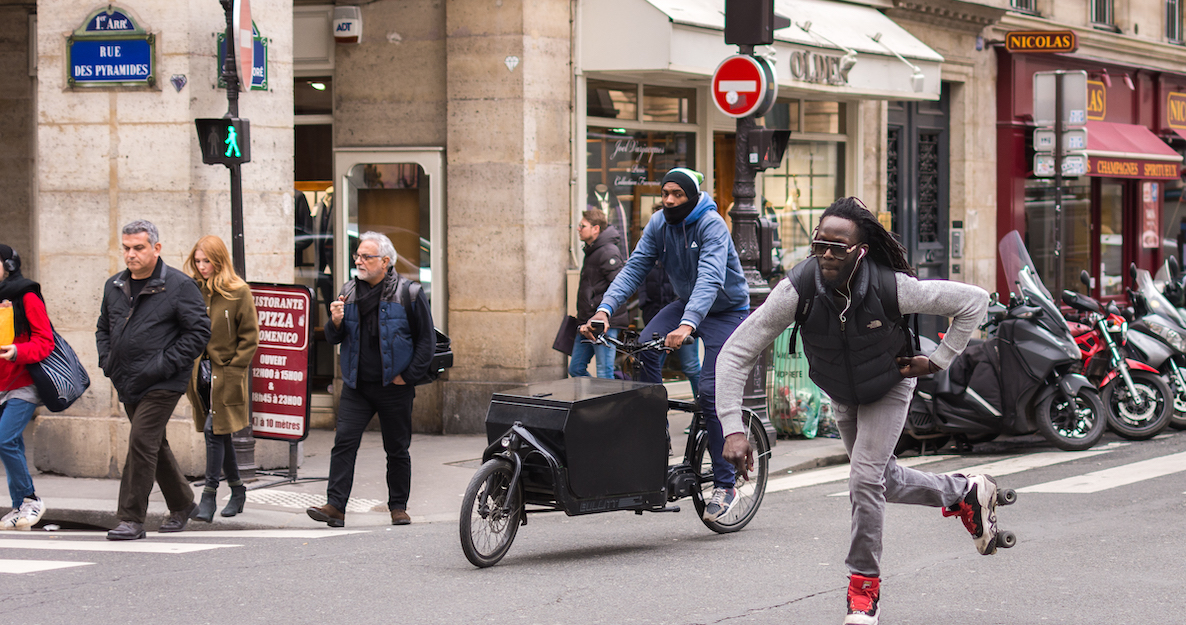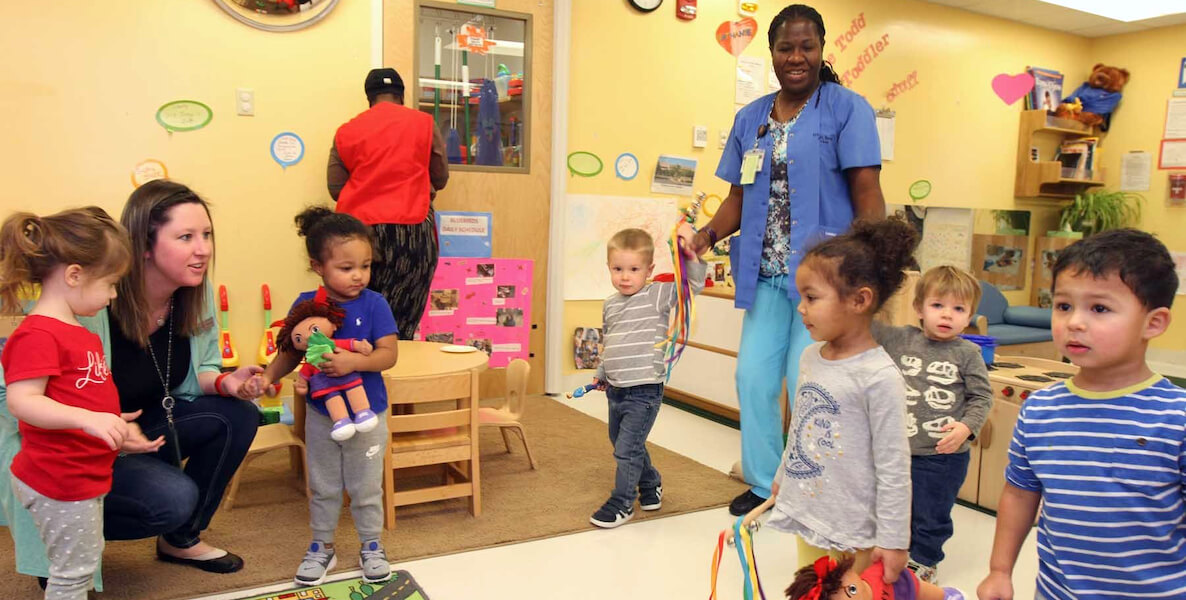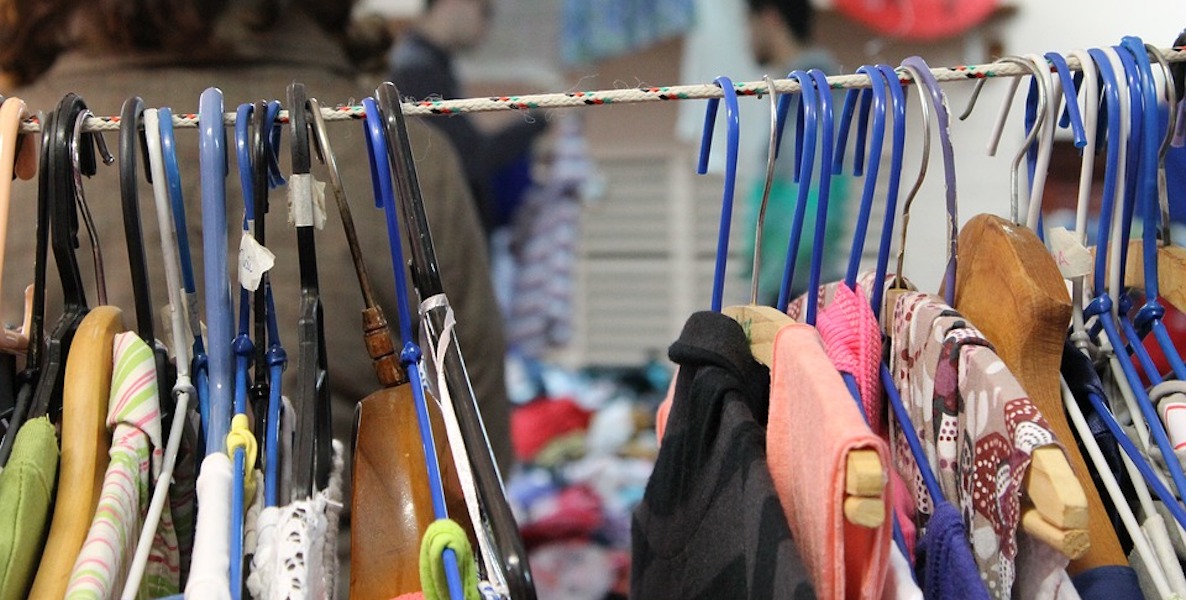Growing up, Laurie Husted recalls visiting her uncle at Bard College in Annandale-on-Hudson, NY, where he worked, and exploring a seemingly magical closet in a main building on campus. There, Husted recalls, people could exchange gently-used items they no longer needed.

Prefer the audio version of this story? Listen to this article in CitizenCast below:

“The closet was filled with everything from clothing to office supplies, and it was all free,” Husted, now Bard College’s Chief Sustainability Officer, says. The college, she adds, has always committed to maintaining a space for community members to recycle and repurpose second-hand items.
It is in the same spirit that, in 2004, Bard College opened FreeUse Store and added, alongside de-facto recycling and trash bins around campus, collection bins for reusable materials like clothing and housewares.
“The space is used in organic ways that I don’t even know about, and I know the FreeUse Store has touched people’s hearts,” says Husted.
The business model for the store was straightforward: recover donations—clothes, dishes, toys, furniture, non-perishable food items, and more—and distribute them, free of charge, to the community. Bard students can easily drop items off at on-campus bins, and community members are invited to bring goods to a donation bin—whimsically dubbed “Helpsy”—located next to the store.
With few exceptions, the model of the FreeUse Store has remained unchanged over the years: donations come in, student workers sift through them, and items are either stocked inside the store or donated to local nonprofits.The Office of Sustainability does not keep track of exact numbers of materials recycled and salvaged, but the space has created a deep and meaningful impact on the community at-large.
![]()
“This year, we worked with a nonprofit that gives out linens and towels—which we receive way too much of—to low-income college students,” Husted says. They also get requests in an ad hoc way, as when students ask if they can, say, take pants and give them to someone they know who is homeless in nearby Kingston. “The space is used in organic ways that I don’t even know about, and I know the FreeUse Store has touched people’s hearts,” says Husted.
Next to oil, the fast fashion industry is the second biggest polluter in the world: Consumers are now purchasing 60 percent more items of clothing compared to 2000. This means that over the course of less than 20 years, the volume of clothing Americans throw away every year has doubled from 7 million to 14 million pounds—about 80 pounds per person.
Trashing these clothes not only adds to the amount of waste sent to landfill each year, but is expensive. Nationwide, one ton of waste costs $45 to send to a landfill. In a year, that will cost Americans a staggering $630 million. Meanwhile, the Environmental Protection Agency estimates that diverting these clothes to these programs is the environmental equivalent of taking 7.3 million cars and their carbon dioxide emissions off the road.
In Philly, a concept like the FreeUse Store could have an even greater impact. Temple and Penn together have about 60,000 students, on campuses in the midst of neighborhoods that are both heavily-populated, and heavily in need. (That’s not even considering the students at the other city universities scattered around town.) Setting up bins for recycled textiles could collect droves of clothing and other needed items for the community—while saving them from going to the landfill.
Nationwide, one ton of waste costs $45 to send to a landfill. In a year, that will cost Americans a staggering $630 million. Meanwhile, the EPA estimates that diverting these clothes to these programs is the environmental equivalent of taking 7.3 million cars and their carbon dioxide emissions off the road.
“While every campus is different, all you need is a person to manage the store’s budget, a space that is not currently being utilized to its full potential, and a consistent set of staff or volunteers,” Husted maintains.
![]()
No Philadelphia colleges or universities have a year-long thrift or Free Use Store on their campuses, but Ryan Kmetz, a former Philadelphian who oversees similar initiatives at St. Lawrence University as the Assistant Director of Sustainability and Energy Management, is optimistic about our colleges and universities adopting similar efforts. “Temple does a great job in the sustainability effort,” Kmetz says. “They have a lot of local partnerships and donate to lots of thrift stores and organizations throughout the city.”
Today, Temple’s Office of Sustainability holds an annual Pop-Up Thrift at the university’s bell tower, where clothes are sold for $10 or less. According to Temple’s Annual Report on Sustainability from 2017, the pop-up thrift store “resulted in the sale of approximately 1,100 recycled clothing items, the donation of an additional 2,500 pounds of clothing to Goodwill and the raising of $2,200 for Hurricane Matthew relief efforts in Haiti.”
![]()
With nearly one in four residents living in poverty in Philadelphia, the highest rate amongst the country’s ten largest cities—and half of these residents living in deep poverty—the costly barriers many students in higher education face contribute to why fewer Philadelphians have obtained bachelor degrees than other cities, but have a similar number of people who have completed some college education. In fact, a 2018 report by the The Hope Center found that basic needs insecurity is higher than the national average at the Community College of Philadelphia and in line with the national average at Temple. Alleviating and offsetting the costs of expenses, like clothing and school and office supplies from second-hand stores, may help students who are looking to finance their education.
Philadelphia’s Powering Our Future initiative has laid out ways in which the city aims to reduce its carbon footprint. And other organizations in the city, like Uhuru Furniture and Collectibles, which re-sells furniture and donates profits to the African People’s Education and Defense Fund, and The Zero Waste Partnership, which works to make Philadelphia a zero-waste city by 2035, aim to reduce the city’s carbon footprint by repurposing goods that are not textiles.
There might not ever be a perfectly sustainable way to get rid of clothing, so the best way to move forward is to change our consumer mindset and continue to use the clothes we already have to their fullest extent—whether by wearing them or repurposing them. Adding more options for community members and college students to recycle and repurpose clothing seems like a logical, low-cost way to get started.
Photo via Pixabay





